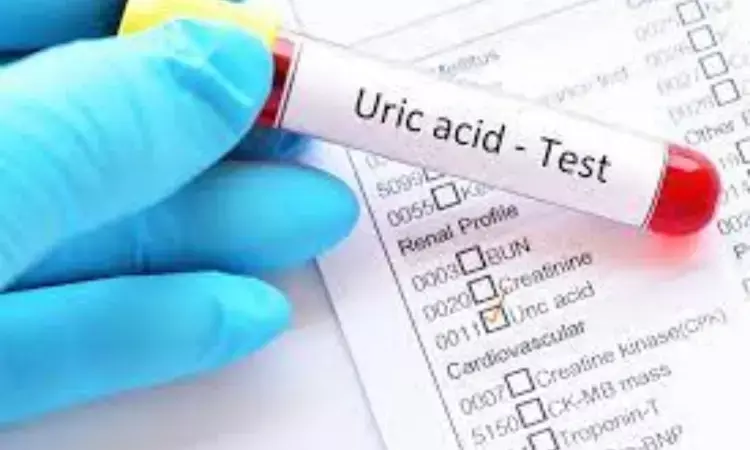- Home
- Medical news & Guidelines
- Anesthesiology
- Cardiology and CTVS
- Critical Care
- Dentistry
- Dermatology
- Diabetes and Endocrinology
- ENT
- Gastroenterology
- Medicine
- Nephrology
- Neurology
- Obstretics-Gynaecology
- Oncology
- Ophthalmology
- Orthopaedics
- Pediatrics-Neonatology
- Psychiatry
- Pulmonology
- Radiology
- Surgery
- Urology
- Laboratory Medicine
- Diet
- Nursing
- Paramedical
- Physiotherapy
- Health news
- Fact Check
- Bone Health Fact Check
- Brain Health Fact Check
- Cancer Related Fact Check
- Child Care Fact Check
- Dental and oral health fact check
- Diabetes and metabolic health fact check
- Diet and Nutrition Fact Check
- Eye and ENT Care Fact Check
- Fitness fact check
- Gut health fact check
- Heart health fact check
- Kidney health fact check
- Medical education fact check
- Men's health fact check
- Respiratory fact check
- Skin and hair care fact check
- Vaccine and Immunization fact check
- Women's health fact check
- AYUSH
- State News
- Andaman and Nicobar Islands
- Andhra Pradesh
- Arunachal Pradesh
- Assam
- Bihar
- Chandigarh
- Chattisgarh
- Dadra and Nagar Haveli
- Daman and Diu
- Delhi
- Goa
- Gujarat
- Haryana
- Himachal Pradesh
- Jammu & Kashmir
- Jharkhand
- Karnataka
- Kerala
- Ladakh
- Lakshadweep
- Madhya Pradesh
- Maharashtra
- Manipur
- Meghalaya
- Mizoram
- Nagaland
- Odisha
- Puducherry
- Punjab
- Rajasthan
- Sikkim
- Tamil Nadu
- Telangana
- Tripura
- Uttar Pradesh
- Uttrakhand
- West Bengal
- Medical Education
- Industry
Tigulixostat significantly reduces serum urate concentration in gout patients

A study by Robert Terkeltaub and peers found that Tigulixostat (nonpurine xanthine oxidase inhibitor) reduces serum urate (sUA) levels in gout patients with hyperuricemia. The findings were published in Arthritis and Rheumatology Journal.
The research team conducted a multicenter, randomized, double-blind, placebo-controlled, parallel-group, dose-finding phase II study. Following screening, gout patients with hyperuricemia were randomly assigned to receive 50 mg, 100 mg, or 200 mg of oral tigulixostat or placebo for 12 weeks after an appropriate washout. Also, all subjects were treated with colchicine to prevent any event of gout flares. The primary endpoint was the proportion of subjects with an sUA level of 5.0 mg/dL at week 12.
The highlights of the study were:
A total of 143 subjects were include randomly to receive 50 mg (n=34), 100 mg (n=38), 200 mg (n=37) or placebo (n=34) of tigulixostat.
Significantly greater proportion of subjects in the tigulixostat dose groups (47.1% in the 50 mg, 44.7% in the 100 mg, and 62.2% in the 200 mg group) achieved sUA levels <5.0 mg/dL at week 12 compared with the placebo group (2.9%).
The mean percent change from baseline in sUA levels was also significantly greater in the tigulixostat dose groups (-38.8% to -61.8%) than in the placebo group at all time points (P value < 0.0001).
The rate of gout flares requiring rescue treatment was 9.4% to 13.2% in the tigulixostat and placebo groups.
The incidence of adverse events in the group ranged from 50.0 to 56.8% and was mild to moderate in severity.
Thus, the authors of this study concluded that Tigulixostat significantly reduces sUA at all doses with an acceptable safety profile when compared to placebo.
Source:
Terkeltaub, R., Lee, J., Min, J., Shin, S., & Saag, K. G. (2023). Serum urate-lowering efficacy and safety of tigulixostat in gout patients with hyperuricemia: a randomized, double-blind, placebo-controlled, dose-finding trial (CLUE). Arthritis & Rheumatology. https://doi.org/10.1002/art.42447
Neuroscience Masters graduate
Jacinthlyn Sylvia, a Neuroscience Master's graduate from Chennai has worked extensively in deciphering the neurobiology of cognition and motor control in aging. She also has spread-out exposure to Neurosurgery from her Bachelor’s. She is currently involved in active Neuro-Oncology research. She is an upcoming neuroscientist with a fiery passion for writing. Her news cover at Medical Dialogues feature recent discoveries and updates from the healthcare and biomedical research fields. She can be reached at editorial@medicaldialogues.in
Dr Kamal Kant Kohli-MBBS, DTCD- a chest specialist with more than 30 years of practice and a flair for writing clinical articles, Dr Kamal Kant Kohli joined Medical Dialogues as a Chief Editor of Medical News. Besides writing articles, as an editor, he proofreads and verifies all the medical content published on Medical Dialogues including those coming from journals, studies,medical conferences,guidelines etc. Email: drkohli@medicaldialogues.in. Contact no. 011-43720751


